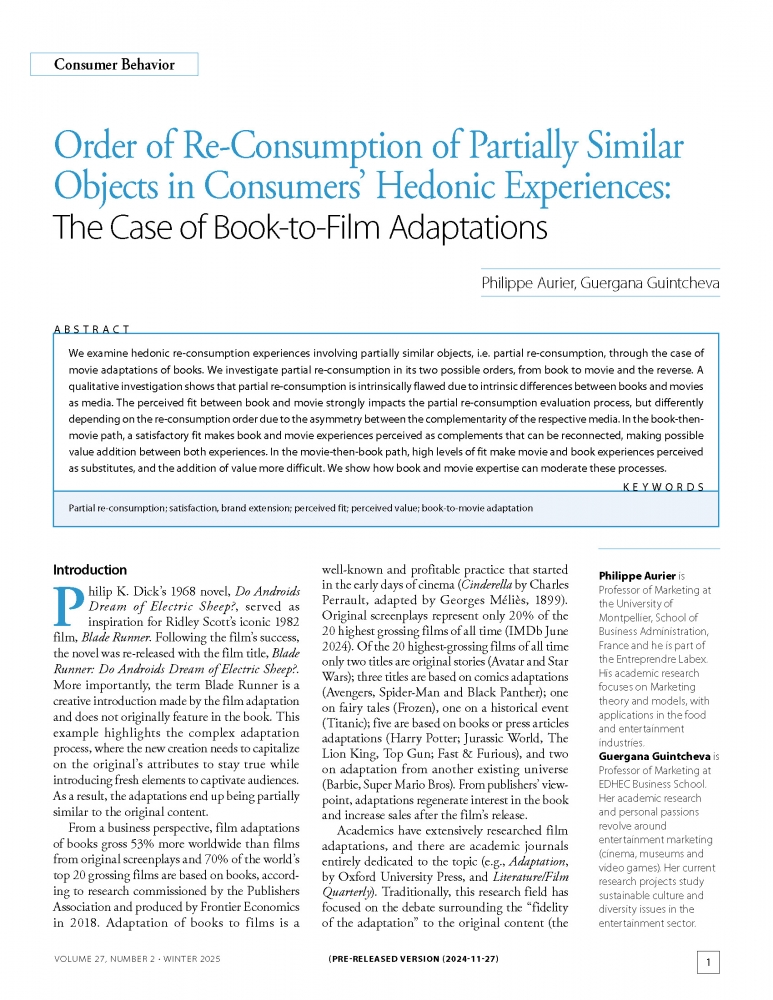Order of Re-Consumption of Partially Similar Objects in Consumers’ Hedonic Experiences: The Case of Book-to-Film Adaptations
Product: Article
$21.00 CA
Philippe Aurier, Guergana Guintcheva
Philippe Aurier is Professor of Marketing at the University of Montpellier, School of Business Administration, France and he is part of the Entreprendre Labex. His academic research focuses on Marketing theory and models, with applications in the food and entertainment industries.
Guergana Guintcheva is Professor of Marketing at EDHEC Business School. Her academic research and personal passions revolve around entertainment marketing (cinema, museums and video games). Her current research projects study sustainable culture and diversity issues in the entertainment sector.
ABSTRACT
We examine hedonic re-consumption experiences involving partially similar objects, i.e. partial re-consumption, through the case of movie adaptations of books. We investigate partial re-consumption in its two possible orders, from book to movie and the reverse. A qualitative investigation shows that partial re-consumption is intrinsically flawed due to intrinsic differences between books and movies as media. The perceived fit between book and movie strongly impacts the partial re-consumption evaluation process, but differently depending on the re-consumption order due to the asymmetry between the complementarity of the respective media. In the book-then-movie path, a satisfactory fit makes book and movie experiences perceived as complements that can be reconnected, making possible value addition between both experiences. In the movie-then-book path, high levels of fit make movie and book experiences perceived as substitutes, and the addition of value more difficult. We show how book and movie expertise can moderate these processes.
KEYWORDS
Partial re-consumption; satisfaction, brand extension; perceived fit; perceived value; book-to-movie adaptation
